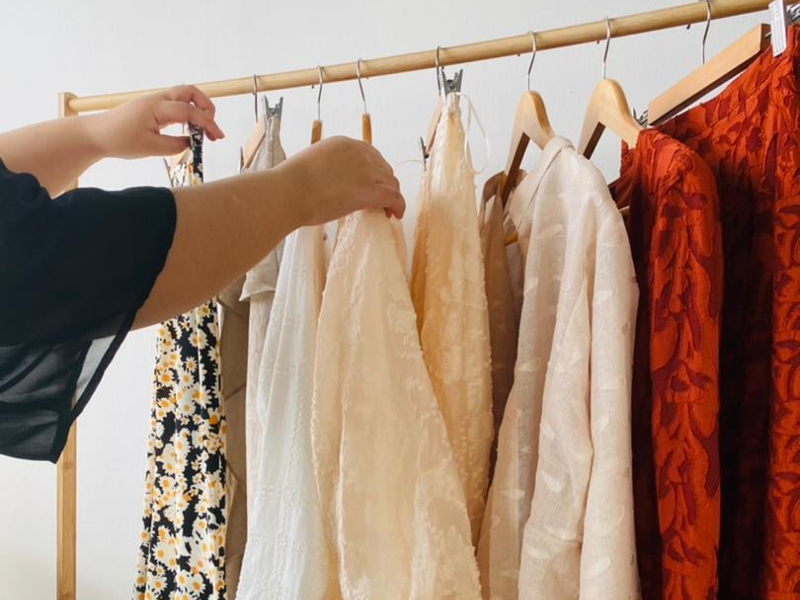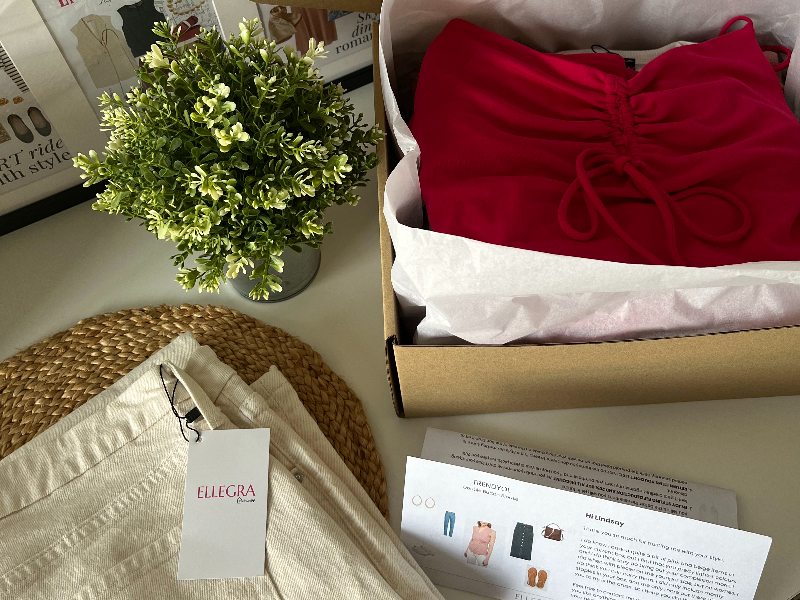
Delhumeau: ‘What am I going to wear?’ This is the question we want to solve for our customers (Photo: Shahrill Basri/ The Edge Malaysia)
Most entrepreneurs would know a successful business largely involves addressing and solving an existing problem. But coming up with a solution that matches the speedy pace of the modern consumer while fully satisfying their needs is easier said than done.
Gwen Delhumeau’s personal problem was finding the right size and style of clothing that would flatter her body. “I want to look good and well presented, but I’ve always hated shopping,” she shares. What she loves is tech and data. “I got really interested in big data when I was doing my second BA in New York. I was meeting people from Salesforce and Google and saw how problems could be solved with data.”
The Frenchwoman was doing business development deals for Sony Music in London before she married a Malaysian and moved here, where she spent a few years with entertainment site iflix doing data analytics.
After she had her second child, Delhumeau found that her fashion problem became more vexing. “I’ve changed, my body’s changed and I don’t know what to get. It was hard before. But now, it’s even more of a pain. When you’re not feeling confident, you don’t want to go shopping.
“I was thinking, there must be a way to build a service that will solve this problem. The answer was a personal stylist. But not everyone can afford them. So, what if I used technology and data to reduce the cost of styling? It would solve my problem, and that of 45% of women, because that’s the percentage of those who don’t like shopping.”
ellegra_1_1.jpg

If you are taken aback by that number, Delhumeau has the figures to prove it. After setting up Ellegra, a fashiontech start-up that provides personal shopping services online, she discovered the bulk of her customers — who are mostly aged 25 to 45 and have professional careers — are constantly tied up. “When you’re in your thirties and forties, your time is so restrained. You spend it a lot at work, and if you have kids, it’s 10 times worse. That also means I can get the other half of the market because women who like shopping also don’t have time anymore.”
This is how Ellegra works: The customer takes a 10-minute style quiz on the website and shares her style, fit and budget preferences. The data will be fed into an algorithm that assists Ellegra’s fashion stylists — who are trained and possess a fashion school degree — in curating a box with five clothing items (often an entire outfit) from a variety of brands. A RM50 styling fee is incurred, but if the customer decides to keep the pieces in the box, the fee can be used as credit to purchase them. If the clothes do not suit their fancy, they can be returned. Those who decide to keep all five items, they get a 20% discount.
“I’ll be very honest with you,” Delhumeau starts. “We don’t always hit the mark, but 80% of the time, it works. The stats are pretty good, given what we’re doing is actually fairly difficult because style is subjective.”
Ellegra’s algorithm establishes correlations between customers with similar profiles and tastes, scans all the clothes and highlights items according to their propensity to be kept by customers. And since fit is one of the main concerns for women, the company developed a tool that tallies up size charts from the brands their customers may have frequented, such as H&M, Uniqlo and Zara. “It basically increases our chances of getting the sizing right, compared to you shopping on your own.”
img_3345.jpg

Having launched Ellegra Prestige, a loyalty programme under which customers can opt to receive a box monthly or bi-monthly, clients can also explore more styles and brands they may not have shopped with before. “One cool thing I want to make available to my subscribers is a tool on their account where they can see the sizes and fit of every item that was sent,” Delhumeau says. Being unfamiliar with that aspect stops women from trying new brands. “With this data they can see who has sizes that work well for them. In this way, they can be excited about getting dressed again.”
Ellegra also works with many local labels, including Love Knot, Dressing Paula and Oh Sebenar. “There are so many designers in this part of the world and what they do is very nice. This gives them another distribution channel, too.” Ellegra caters to sizes UK6 to UK28. “We try where we can.”
Delhumeau recalls that when she set up her company in 2020, it was fun and exciting, but the following year proved difficult. “I quickly learnt that raising a lot of money could be a curse because you need to deliver a lot of revenue really quickly. I’m glad I basically sucked at fundraising, because then we had to learn the hard way.” It was serendipitous how a number of investors came after that. “I learnt to take it slow and made sure everything we did transformed into retention. Right now, 80% of our customers stay after six months and 60% after 12. How do I keep those retention numbers when I scale is the problem we’re trying to solve.”
While her long-term goal is to expand across Southeast Asia, she is checking off short-term achievements in the meantime. In September, Ellegra launched Preloved, a new initiative whereby women can exchange their new or barely worn clothes for cash or store credit. “There are so many clothes in everyone’s closet that have barely been used. If I can collect these and give them a new home, it will, first, make those who can’t afford a brand-new piece happy and, second, help us be more sustainable.”
Ellegra is also accepting children’s clothes —“Pre-loved is perfect for kids because they grow so fast!” — which will eventually segue into its own segment catering to newborns up to tweens. “There will be another style quiz that children can take with their mums, depending on their age.” They may start styling men in the future, but Delhumeau wants to perfect serving her current demographic first.
“‘What am I going to wear?’ This is the question we want to solve for our customers and, through that process, give women the confidence to look stylish and different every day. We are here to make it easier.”
This article first appeared on Sept 26, 2022 in The Edge Malaysia.


